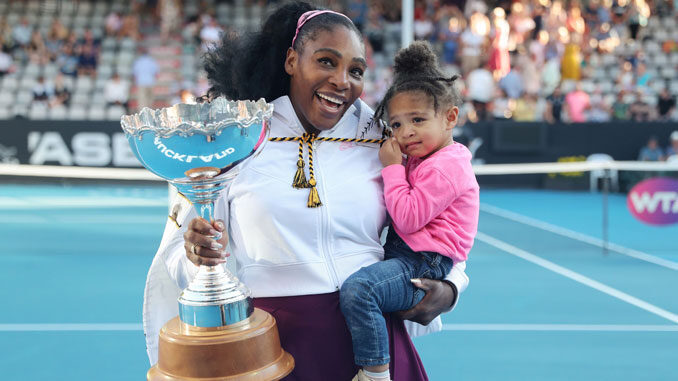
Alexa Spencer Word In Black
Serena Williams — one of the greatest of all time in women’s tennis — has announced she’s retiring her racket to focus on her business ventures and family.
After a historic career, including 23 Grand Slam Championship wins, Williams shared her decision on Aug. 9 in Vogue Magazine, writing that she “never wanted to have to choose between tennis and a family. I don’t think it’s fair.”
Williams said accepting that she’d have to move on from playing tennis wasn’t easy. She hardly talked about it with her husband and couldn’t even speak with her parents about it. But in the midst of it all, she found comfort in speaking to a therapist.
“I’ve been reluctant to admit that I have to move on from playing tennis,” she says. “It’s like a taboo topic. It comes up, and I start to cry. I think the only person I’ve really gone there with is my therapist!”
As one of the latest athletes to express her personal experiences with therapy, Williams and others, like four-time Grand Slam Champion Naomi Osaka and seven-time Olympic Medalist Simone Biles, are leading the way for Mental Health Advocacy in the Black community.
With nearly one-in-five Black people, or 6.8 million, reportedly living with mental illnesses, celebrities and researchers alike are working to end the Black Mental Health Crisis affecting folks of all classes.
“I’m here to tell you that I’m evolving away from tennis, toward other things that are important to me.
-SERENA WILLIAMS
Williams is also among the many Americans seeking to bring balance to work and life. According to a 2018 survey from Gartner, work-life balance is valued more than health benefits among employees. Like the tennis star, many people find it increasingly important to have an opportunity to focus on home and family.
“I’m here to tell you that I’m evolving away from tennis, toward other things that are important to me,” she said in the as-told-to article.
Williams has had to overcome many obstacles on her way to the top — including having a baby that resulted in several health complications.
Her story made national headlines, as Black women are three to four times more likely than white women to die from pregnancy-related health problems.
Williams recognized that some might say she isn’t the GOAT because she didn’t pass Margaret Court’s 24 Grand Slam record — but she encouraged us to look at all that she accomplished as a mother and a player.
“I went from a C-section to a second pulmonary embolism to a grand slam final,” Willaims wrote. “I played while breastfeeding. I played through postpartum depression. But I didn’t get there. Shoulda, woulda, coulda. I didn’t show up the way I should have or could have. But I showed up 23 times, and that’s fine. Actually, it’s extraordinary. But these days, if I have to choose between building my tennis résumé and building my family, I choose the latter.”
Nowadays, she’s enjoying time with her 5-year-old daughter, Olympia — and in a nation that bombards us with negative images and stories of dysfunction, Williams regularly provides a much needed visual of healthy Black motherhood.
“I want to teach her how to tie her shoes, how to read, where babies come from, and about God. Just like my mom taught me,” Williams wrote of her time with Olympia. “As she grows, it’s something different every month. Lately, she’s been into watching baking shows, which we do together. Now we bake with Play-Doh, which is so much fun. She loves this game called The Floor Is Lava, where you have to do whatever, you can to avoid touching the ground,” she wrote.
While the court lights shut off on Williams’s tennis career, the community will always remember the beaded-hair Black girl who made a profound statement in the sport.
“…this is it, the end of a story that started in Compton, California, with a little Black girl who just wanted to play tennis.”
Recommended For You.



Be the first to comment